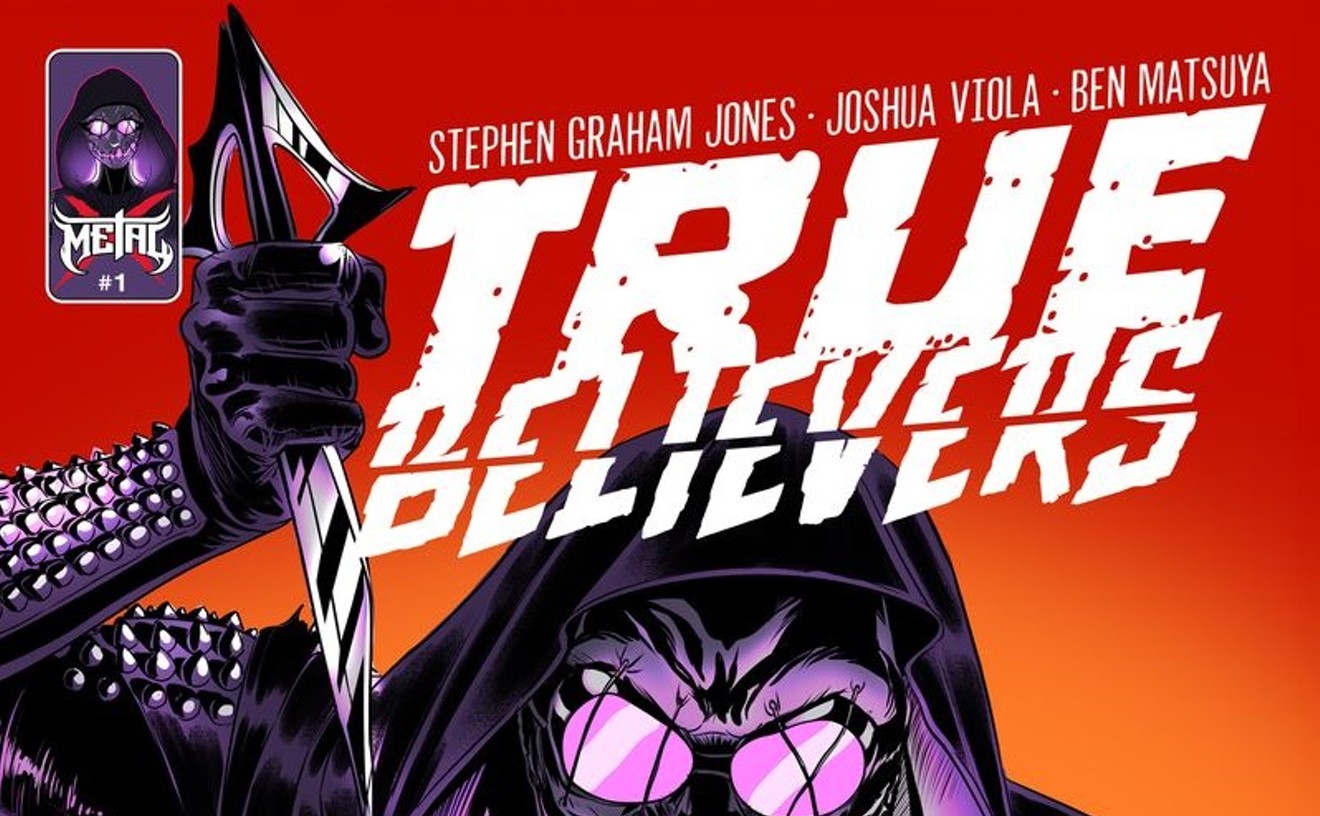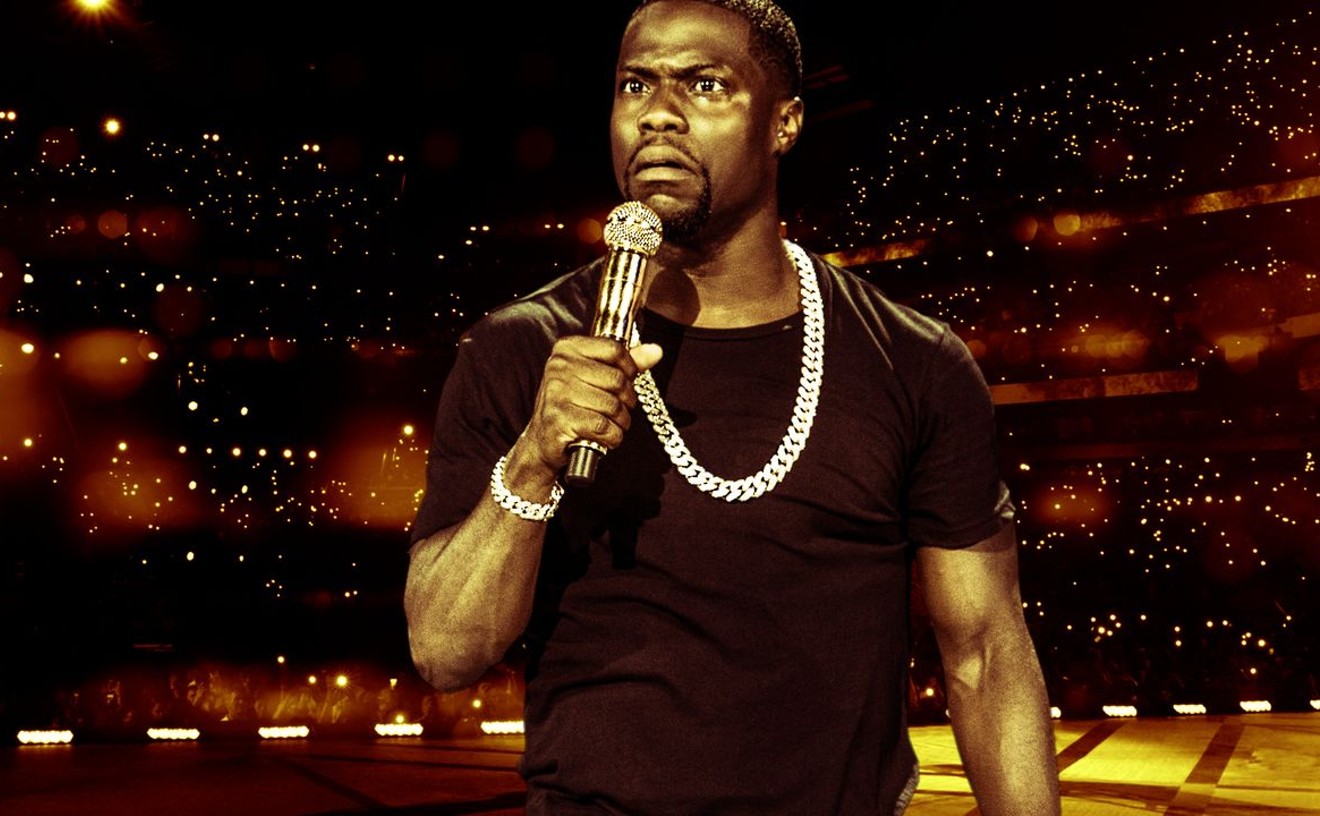Fellow activist and filmmaker Sini Anderson directs the powerful piece, which walks fans through Hanna's early beginnings as a student at Evergreen State College to her current fight against Lyme Disease. In advance of the film's opening today at the Sie FilmCenter, Westword spoke with Anderson about how she brought Hanna's life to the big screen.
See also: Michelle Tea on Sister Spit, tit-ins and how to deal with Mercury retrograde
Westword: How did you meet Kathleen Hanna?
Sini Anderson: We shared a mutual friend -- Tammy Rae Carland, who is the owner and operator of Mr. Lady Records. We were both on Mr. Lady Records. We met in about 2000, I think?
What the catalyst for making a film about Kathleen and her work?
Initially, Kathleen came to me because they were ready to get started on the Le Tigre documentary, Who Took the Bomp? and just occurred to me that it would be a good idea for her to tell her story right now. I asked Kathleen if she had considered that, and she said, no, not really. She had been out of music for about five years at that point. I told her, I think it is a really good idea for people to hear your personal story.
She was like, well, that sounds interesting and terrifying, but okay. But she was working on the Le Tigre documentary at that time. A couple of weeks later she called me up and said, I've been thinking about what you said and you're right -- I'll totally tell my story.
Seeing The Punk Singer made me realize how important of a component it was to the Le Tigre documentary that came before it to tell how Kathleen got there in the first place. Along with her bandmates Johanna Fateman and JD Samson, there were so many key people who spoke in this film. Did people just naturally appear as she told her story or did you seek out everyone who participated?
I think it was organic to the story for sure, but I also sought them out. Most of the people who were interviewed in this film were people that have been pretty close to Kathleen throughout her life. That's kind of what I was going for -- I wanted people who intimately knew her or knew of her work or who were largely influenced by her.
Kathleen has a very female story, so it was not surprising that most of those people who spoke were women. I don't think it was until we were finished and other people were looking at the documentary and saying, "There are no men in here? You might want to go and interview some." I was like, oh, that's right. There's not, with the exception of her husband (Adam Horovitz from the Beastie Boys).
But I was like, I'm not too worried about excluding men. I think I have what I need. (Laughs.) The people who were around her were the people who I interviewed. Ian McKaye and Thurston Moore are awesome and supportive dudes and Kathleen has great relationships with them, but I didn't think they needed to speak on this subject. They absolutely could and she adores them and they know a good amount about her and a great amount about music, but so do Becca Albee and Carrie Brownstein and Corin Tucker, you know?
It was really important for me to have the voices that I felt were really going to explain her work and not just be the quote-unquote "experts." Why did you think it was important to make a documentary about Kathleen Hanna right now?We're a little bit over twenty years outside of the beginning of her career and I think that we can recognize that activism kind of goes in twenty-year cycles. We're also twenty years outside of the beginning of third-wave feminism. When we started making the film, feminist activism was pretty quiet. Both of us who kind of grew up into ourselves through feminism and activism -- so, that makes you kind of nervous.
It was like, oh, here we go again. Do we have to ask this question: Is feminism dead or do we not need it anymore? Of course the answer to us is no, of course we need it. But the new stuff needed to be put out there in order to keep it alive, kind of.
I just thought we could really use it at this time period. Kathleen is in the middle of her career. Often, we take a look at people after they stopped making work or are no longer with us. There are so many reasons. Also, Kathleen was so incredibly sick when we started -- she didn't know what she had. She had been getting misdiagnosed for five or six years at that point. In her words, she felt like she was dying and nobody was going to figure it out.
The part of the film where she really gets into her illness -- was that planned to be a part of the documentary?
No. It wasn't planned at all. I thought that it may come up. But Kathleen had a very different story about why she had stopped playing music when we started filming. Her story of why she stopped playing music was that she had said everything that she needed to say. She was burnt out and had done it for a long time.
I never really bought it. I held it in my mind the whole time. It seemed like she was glossing over the question really quickly -- like, yeah, I kind of said everything I needed to say. There's a scene in the film where she's by the fireplace and she gets really, really quiet. This is one of my favorite things about making this film -- we had moments like that, where Kathleen didn't have an answer.
We just sat there and let the camera roll. We had a few times where my DPs (directors of photography) were like, should we cut? And I was like, no. We so quickly want to move away from silence. We want the answer right away. I was really impressed with Kathleen's willingness to sit there and think and then get to the point.
When she's by that fireplace (in the film) and says, I said everything I needed to say -- like, a minute later she says, I lied. She was coming to terms, right there in the moment, that she didn't want to accept that her body was telling her that she couldn't perform anymore.
That's what really opened up us talking about the illness in the film -- that moment. In that scene, she still didn't have a diagnosis. She didn't know what was wrong with her. It became very emotional. A month later she got her diagnosis -- Lyme Disease -- and started treatment. We were halfway through the film at that point, so then we were dealing with her treatment and her getting sicker. That's when I asked Adam (Horovitz) to film most of her treatment. I have one last question and that's about the Riot Grrrl movement. Because it wasn't that well-documented, how were you able to find so much great footage and fliers and photos? Were those all Kathleen's?
Mostly, yes, they came from Kathleen's personal archive that she was collecting for the Riot Grrrl collection at the Fales Library at NYU. Lisa Darms, the senior archivist there, had been collecting materials and Kathleen had been collecting materials for a couple of years so they could have this archive. A lot of the footage Kathleen and her interns had been collecting for a while and really looking for outside sources.
There's some really rich, beautiful Bikini Kill stuff that came from a filmmaker that lives in the UK named Lucy Thane. She had been holding it for a long time. I tracked her down and finally got her to send it to me.
The Punk Singer opens today at Sie FilmCenter. For more information or to purchase tickets, visit the Sie's website.
Follow @WestwordCulture











